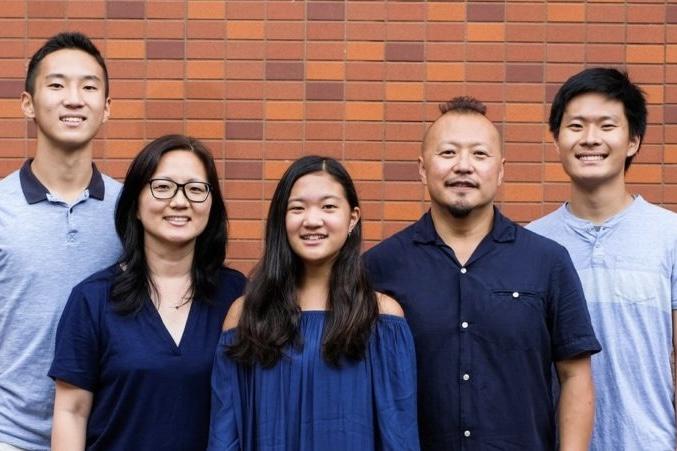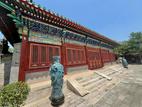Seth Kim, Lausanne Movement's Regional Director for East Asia, recently shared his reflections on gospel ministry in East Asia during an episode of the Lausanne Movement podcast. Drawing from his personal background and extensive experience in church planting, discipleship, and student ministry, Kim outlined the challenges and hopes facing the church in one of the world's most complex and spiritually significant regions.
Born in South Korea and raised in the United States, Kim once wrestled with questions of identity. Over time, however, he recognized that his multicultural experience allowed him to connect more easily with people from diverse backgrounds. During his college years, the gospel began to shape his values, eventually leading him to pursue theological training. In 1996, he and his wife founded Harvest Mission Community Church (HMCC) in Ann Arbor, Michigan, with a vision to raise bold disciples who would transform the world.
Since then, HMCC has planted churches in cities including Austin, Jakarta, Tangerang, Detroit, and Hong Kong. In 2015, Kim and his family moved to Hong Kong to launch HMCC of Hong Kong, where he currently serves as lead pastor. The church ministers to university students and now has a presence on six of the eight government-recognized universities in the city.
Having ministered in both North America and East Asia, Kim observed significant cultural differences in how the gospel is received. In the West, evangelism typically addresses personal sin and the need for individual salvation. In contrast, Asian cultures often emphasize performance and community, with a strong concern for harmony and collective well-being.
These cultural dynamics have led Kim to adjust his approach. In East Asia, he begins with the creation narrative, helping those unfamiliar with Christianity understand God's original intent for humanity and the world. He explains how human rebellion has disrupted not only personal relationships with God, but also the harmony within creation and among people. Against this backdrop, the gospel message of reconciliation through Christ becomes especially compelling in a culture that prizes relational wholeness.
Kim also believes that evangelism and discipleship should not be separated. Influenced by Robert Coleman's teaching, he holds that evangelism is only complete when new believers go on to disciple others. At HMCC, this principle is lived out through "life-on-life" ministry, where believers share their lives, model Christlike character, and walk alongside others through transformation. As people witness something different in the way Christians live, they become curious—and often open—to the gospel.
Reflecting on church planting in East Asia, Kim emphasized that while various models exist, the essence of church planting remains the same: bringing the gospel and the reign of Jesus into different contexts through authentic, transformed living. "Jesus can use any model," he noted, cautioning against becoming overly fixated on specific methods or best practices. Kim often refers to the early church described in Acts 2—not as a rigid blueprint to replicate, but as a foundational example containing essential traits for any church, regardless of size or context.
At the same time, he stressed the importance of contextual flexibility: understanding the surrounding environment and cultural dynamics is essential. For example, planting a megachurch may not be feasible—especially in countries where Christians must gather underground. In these contexts, smaller "micro churches" can serve as effective spiritual communities. In Hong Kong, Kim has encouraged his leaders to treat their small groups as functioning churches in themselves.
He also pointed out cultural and institutional differences across East Asia that affect church leadership. In some countries, pastoral ministry requires formal academic degrees or titles. Yet Kim believes that a deep love for Jesus, training within a local church, and a clear understanding of the church's mission can qualify someone to plant and lead a church, regardless of formal credentials.
As Lausanne Movement's Regional Director for East Asia, Kim acknowledged that ministry in the region is extremely challenging. East Asia includes eight areas—Japan, North Korea, South Korea, Chinese Mainland, Mongolia, Taiwan, Hong Kong, and Macao—with a combined population of nearly 1.7 billion, accounting for 21% of the world's population.
Bringing people together across these diverse contexts is not easy. Language barriers, cultural differences, and political restrictions often make collaboration and gathering difficult. Furthermore, some of the world's most unreached people groups are located in this region, where Buddhism, folk religion, Taoism, and other belief systems create significant resistance to the gospel.
One pressing challenge, Kim noted, is the lack of unity, particularly among younger leaders. Many feel excluded by hierarchical structures that concentrate authority among older generations. While those long in leadership tend to maintain established directions, younger leaders are increasingly eager for change and new possibilities.
Amid these challenges, Kim remains hopeful. He believes East Asia is a spiritually dynamic and significant region. The rapid social and economic development has exposed a deep sense of emptiness. As people chase after material success, many eventually realize that it does not satisfy. This has led to a renewed hunger for meaning and transcendence.
Many of the traditional religions and idols people have relied on are gradually losing their grip. Kim has observed that people are beginning to recognize there must be something more. As a result, there is now greater openness—especially among the younger generation—to hearing the gospel and exploring the message of the Bible. In many East Asian countries, declining birth rates point to long-term demographic shifts but also signal a rising generation marked by spiritual hunger.
There are also many untold stories emerging from this region, testimonies of faithful believers who continue to serve quietly but powerfully in their contexts. China, Kim said, is a major part of this. A movement of God is taking place among Chinese churches, as they mobilize together to bring the gospel "back to Jerusalem." Even in places where persecution and hardship remain part of daily life, many Christians are full of joy and determination to share the good news where Christ is still unknown.
In some more developed areas of East Asia, where conditions are relatively more open, a growing number of young people are embracing a deep passion for missions. Many from this new generation are not only hearing the call to go where the gospel has not yet reached—they are responding to it.
Kim called on the global church to pray for East Asia, emphasizing the need for greater unity—both among the diverse nations of the region and within the broader body of Christ—so that believers might pursue a shared vision with deeper collaboration. He also encouraged intercession for the next generation in each country, so that young Christians would be inspired and equipped to respond to the call of bringing the gospel to places where it has not yet been heard.













